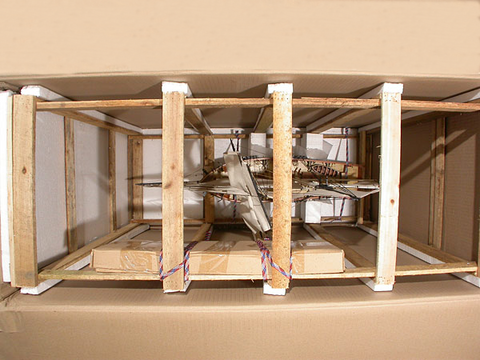L: 24 W: 4 H: 25.5 Inches
Built in 1898, the Pen Duick was one of the most beautiful sailing boats. Its simple design and sophisticated rigging of the sails makes it really stand out. Have it display as a home or office decor.
Master craftsmen handcraft these highly detailed wood models from scratch using historical photographs, drawings, and original plan. They are built to scale with high-grade wood such as western red cedar, rosewood, and mahogany. They are 100% hand built individually using plank-on-frame construction method and are similar to the building of actual ships. Each model requires hundreds of hours to finish and must go through a demanding quality control process before leaving the workshop.
This model hull is handcrafted from strips of wood using plank on frame construction method. The deck is made from many strips of wood. There are various details on the deck such as hatches, winches, and cabin. One can also locate a metal filter on the deck near the companionway. The stitched sail and intricate rigging complete the definition of a true sailing boat.
The model is shipped with the mast folded down and some assembly is required. It’ll make a perfect gift for home or office decorator, boat enthusiast, or passionate collector.
The 36-rater Pen Duick (launched as Yum) was built in 1898 by Cummins & Sons at the Gridiron & Marine Motor Works at Carrigaloe in Cork Harbour, Ireland, to a Linear Rating Rule designed by Scotsman William Fife III. The gaff-rigged cutter was quickly noted as a successful racer in Irish, British and French waters. Eric Tabarlys father acquired her when Eric was seven years old and the boy learnt to sail on her. After World War II, she was put on sale, but finding no takers, Éric convinced his father in giving her to him. Years later, he was told her wooden hull was rotten, and being unable to hire a yard to salvage her, proceeded to save her himself, making a mold to build her a new polyester hull: It was the largest of its kind at the time. He refitted her entirely, with a loftier rig for the southern climes. In the night of June 12 to 13 1998, Éric Tabarly fell overboard and was lost in the Irish Sea, while sailing the hundred-year-old cutter en route to the Fife Regatta in Largs, Scotland.






























